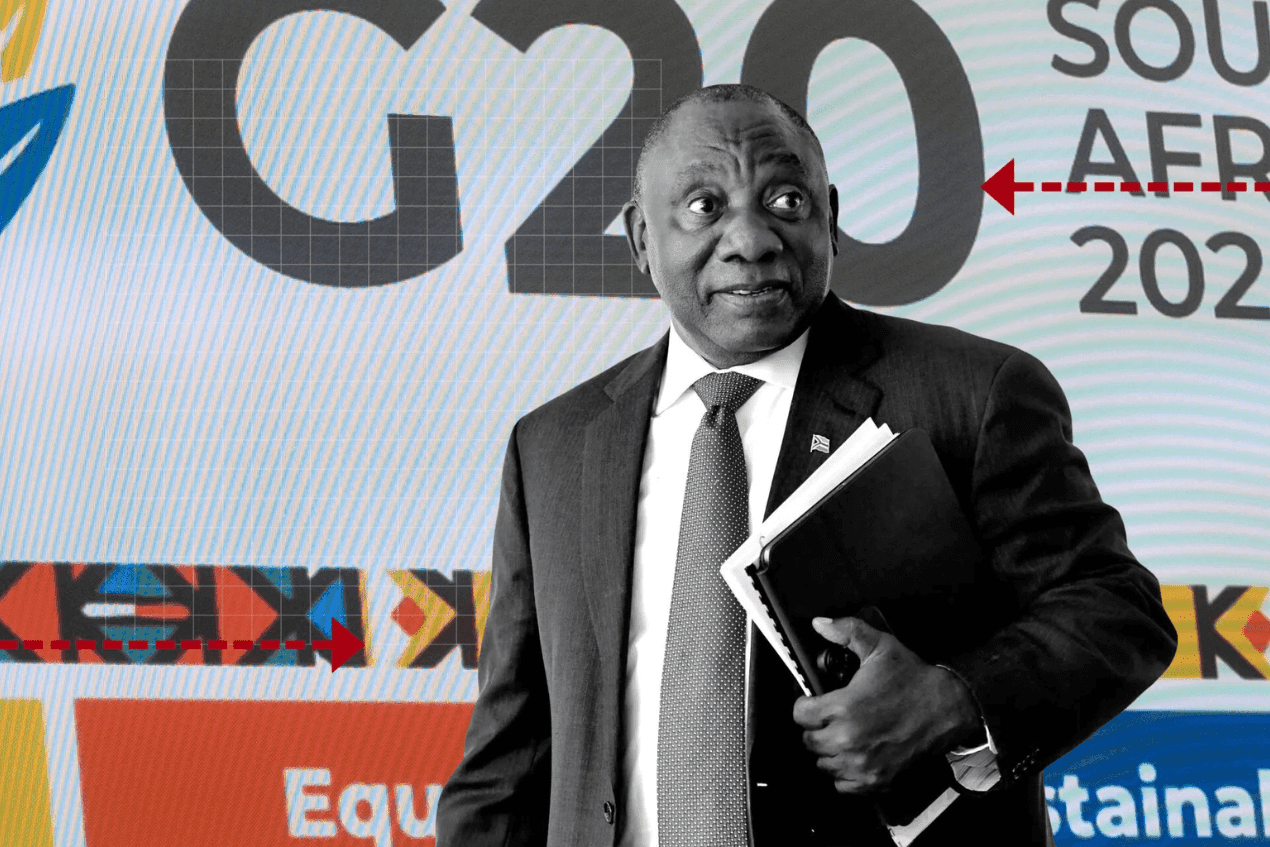We're loading the full news article for you. This includes the article content, images, author information, and related articles.
As a G20 expert group proposes a new international body to tackle wealth disparities, Kenyan civil society demands action on debt and fair taxation, amplifying the local impact of a growing global crisis.

JOHANNESBURG – An expert committee commissioned by the G20 has formally called for the creation of a new global body to address what it terms an “inequality emergency,” a proposal gaining momentum ahead of the G20 Leaders' Summit in Johannesburg scheduled for Friday, November 22, and Saturday, November 23, 2025, EAT. The recommendation was a central feature of a landmark report presented on Tuesday, November 4, 2025, by the G20's Extraordinary Committee of Independent Experts on Global Inequality.
The committee, chaired by Nobel Prize-winning economist Joseph Stiglitz, proposed the establishment of an International Panel on Inequality (IPI). This body would be modeled on the Intergovernmental Panel on Climate Change (IPCC) and would serve as a permanent, independent institution to monitor global inequality trends, analyze its drivers, and assess policies to combat it, thereby informing governments and international forums. The proposal has since garnered the public support of over 500 economists and inequality experts from more than 70 countries, including prominent figures like former U.S. Treasury Secretary Janet Yellen and French economist Thomas Piketty.
The report, commissioned under South Africa's G20 Presidency, paints a stark picture of the world's economic landscape. It reveals that the richest 1% of the global population has captured 41% of all new wealth created since the year 2000, while the bottom 50% of humanity received just 1%. This concentration of wealth, the experts argue, fuels political polarization, erodes democracy, and hinders inclusive growth. Data from Oxfam released ahead of the summit further highlights the scale of the issue, noting that billionaires in G20 countries saw their collective wealth increase by $2.2 trillion in the last year alone.
The committee includes distinguished experts such as Winnie Byanyima from Uganda, the Executive Director of UNAIDS, ensuring a strong African perspective in its deliberations. South African President Cyril Ramaphosa, who established the task force in August 2025, stated that the report supports his presidency's goal of placing inequality firmly on the international agenda, calling it an “inescapable generational challenge.”
The G20's focus on inequality holds significant implications for Kenya, where the gap between the rich and poor remains a critical challenge. According to Oxfam, less than 0.1% of the Kenyan population (approximately 8,300 people) owns more wealth than the bottom 99.9% (over 44 million people). The Kenya National Bureau of Statistics reports that about 36% of Kenyans live below the national poverty line. This economic disparity is exacerbated by a heavy public debt burden, which stood at KSh 11.81 trillion (around 67.8% of GDP) as of November 2025, consuming a substantial portion of national revenue that could otherwise fund public services.
In the lead-up to the Johannesburg summit, Kenyan civil society groups have been vocal in their demands for systemic economic reforms. The Fight Inequality Alliance (FIA) Kenya, a coalition of grassroots movements and NGOs, has held a series of “People's Assemblies” in Nairobi, Vihiga, Kakamega, and Kiambu. Their core demands to the G20 include debt cancellation or significant restructuring, an end to austerity measures often tied to international loans, and the implementation of fair global tax rules to ensure multinational corporations and the super-rich contribute their share. “The G20 continues to operate within an economic framework that deepens inequality rather than confronting it,” stated Brenda Osoro, National Coordinator of FIA Kenya, at a media briefing on Thursday, November 13, 2025.
This year's summit is particularly significant as it is the first to be hosted on African soil and follows the African Union (AU) becoming a permanent member of the G20 in September 2023. The AU's inclusion, a move welcomed by Kenyan President William Ruto, grants the 55-member bloc the same status as the European Union, providing the continent with a more influential platform to advocate for its priorities. These priorities, outlined by the AU, include reform of the international financial architecture, addressing sovereign debt, and enhancing trade and investment to support the African Continental Free Trade Area (AfCFTA).
The G20's recent presidencies, including Brazil in 2024 and now South Africa in 2025, have increasingly centered on issues of inequality, poverty, and sustainable development. Brazil's presidency saw the launch of a Global Alliance against Hunger and Poverty and advanced discussions on taxing extreme wealth. As the leaders convene in Johannesburg, the question remains whether the proposal for an International Panel on Inequality will be adopted and translated into concrete global action, a decision that will have profound consequences for nations like Kenya striving for a more equitable and sustainable economic future.
Keep the conversation in one place—threads here stay linked to the story and in the forums.
Sign in to start a discussion
Start a conversation about this story and keep it linked here.
Other hot threads
E-sports and Gaming Community in Kenya
Active 9 months ago
The Role of Technology in Modern Agriculture (AgriTech)
Active 9 months ago
Popular Recreational Activities Across Counties
Active 9 months ago
Investing in Youth Sports Development Programs
Active 9 months ago
Key figures and persons of interest featured in this article